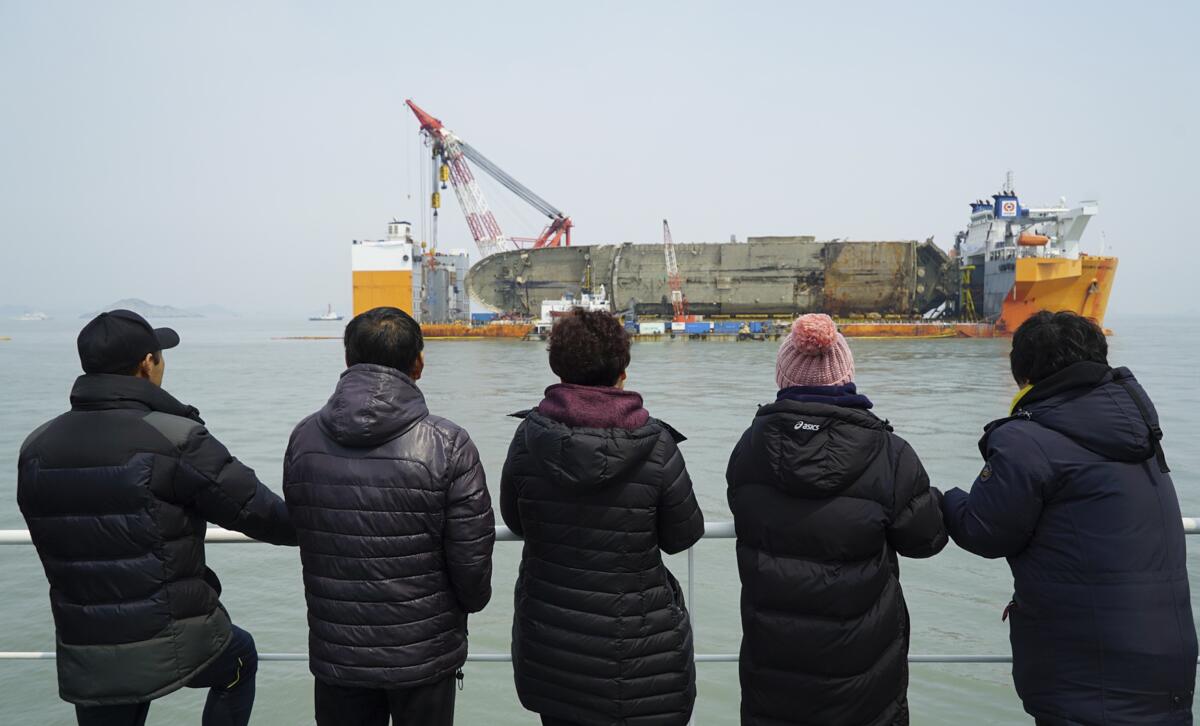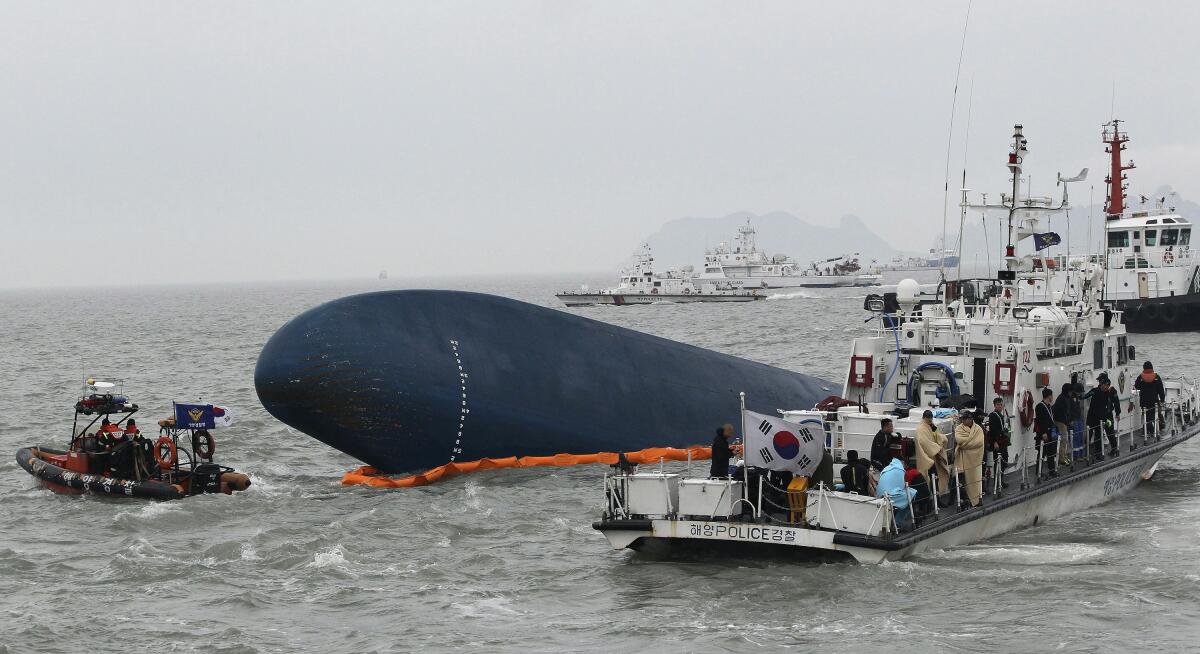The Korean ferry accident 8 years ago took hundreds of lives. We still don’t know why it happened

- Share via
HWASEONG, South Korea — On April 16, 2014, my son Su-hyeon Park died in the Sewol ferry disaster, along with 249 of his high school classmates. They were on an overnight trip. The world watched as the ship rolled over, trapping and drowning children who just moments before had been seen laughing on their cellphones. In all, 304 people lost their lives.
Surely you remember images of the capsizing ferry. Not a day has gone by that my wife and I have not thought of our son. He loved to play jazz on the piano. When he was little he was fascinated by insects. Once we spent an entire day watching an ant hill.
But the world has moved on from the Sewol. The months have passed, the seasons have passed, the years have passed. Yet much remains unknown about the sinking. We, the parents of the children from Danwon High School who died, are still desperate for answers.
The cause of the accident has never been determined, despite numerous investigations. Many of those convicted of negligence in the sinking have had their verdicts overturned. And several mysteries — such as why it took so long for the Coast Guard to launch a rescue, and why President Park Geun-Hye disappeared from public view for hours as the tragedy unfolded — have never been cleared up.
Finally, grieving mothers and fathers like my wife and myself were targeted by the Korean military’s intelligence service, which spied on us and sought dirt on us as part of a plan to blackmail us so we would stop demanding answers.
We were also attacked by right-wing politicians and internet trolls, who accused us of wanting money or being agents of North Korea — a common accusation made by our conservative party. Our experience echoed that of the parents of the children slain in Newtown, Conn., in 2012, who were outrageously targeted by conspiracy theorists.
We didn’t stop. We couldn’t stop. This egregious violation of our rights contributed to the disbandment of the intelligence service, the Defense Service Command, just as the hopelessly botched response to the sinking resulted in the disbandment of the South Korean Coast Guard. And our relentless candlelight vigils unbowed by the intelligence service’s intimidation tactics — helped bring down the Park administration.
But still, so many years on, we don’t know why the Sewol sank. We don’t know why our beloved children died.
The last of three major investigations — the so-called “Hull investigation” — concluded in 2018 that the reason the ship suddenly heeled over could not be determined.
Two hypotheses were presented in the final report. One hypothesis was “internal” — that poorly secured cargo, for example, had shifted on the overloaded ship — and one was “external.” This second one allowed for the possibility that the Sewol had struck an unknown object, such as a submarine. The panel could not agree on which hypothesis to accept.

And so we have no answer. Still.
It was called the Hull investigation because it was the first investigation undertaken after the ship had been raised, allowing for close inspection. This had long been resisted by the Park administration. The Sewol — rusted and deformed — was finally lifted from the seabed just 13 days after Park was removed from office on March 10, 2017.
We had great hopes when Park’s successor, Moon Jae-in, took office in 2017. His administration was born from the hopes of 10 million candles — those that we parents lighted and burned in Gwanghwamun Square. But our hopes have been extinguished.
Before he was elected, when Moon worked as a member of the opposition in the National Assembly, he rebuked Park and others for obstructing ratification of a special act to help the Sewol victims. He even fasted with the bereaved families. He criticized the decision to seal a report on Park’s whereabouts during the crucial hours of the sinking and cited it — again and again — during his campaign for president.
He won. And then? Nothing. I am not aware of even one act in Moon’s nearly five years in office that moves us closer to determining why the ferry sank.
Now he is leaving office. His successor, Yoon Suk-yeol, is a member of the conservative party, as was Park. We have learned not to hope for much progress toward answers.
To many in the United States and around the world, the Sewol is a vaguely remembered tragedy, one that unfolded in a distant land and has faded into history. But the story is not finished. For us it is as alive as our beautiful children were on that fateful night when they set sail.
Jong Dae Park has devoted himself full time to researching the sinking of the Sewol ferry since 2019.
More to Read
A cure for the common opinion
Get thought-provoking perspectives with our weekly newsletter.
You may occasionally receive promotional content from the Los Angeles Times.









